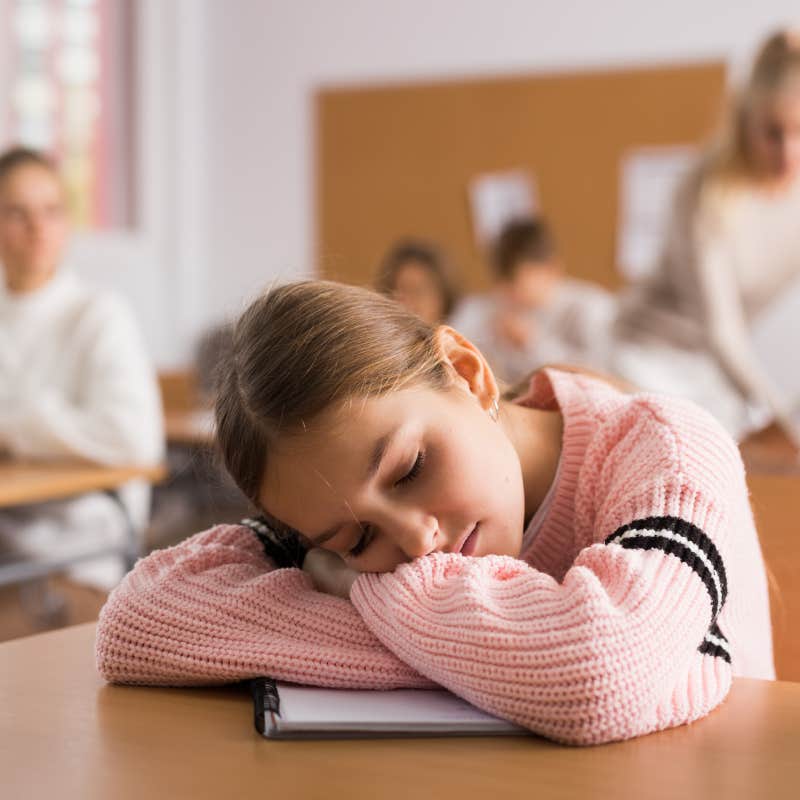A School Demanded That Students Have To Show 'Evidence' Of Period Pain To Use Their Sick Days Without Penalty
Parents were rightfully outraged at the school's new policy and spoke out against their request for "evidence."
 VH-studio | Shutterstock
VH-studio | Shutterstock A school in the U.K. is facing serious criticism and backlash from parents after announcing that they will be implementing new policies regarding how students can use their sick days.
Neale-Wade Academy in March, Cambridgeshire — a town located in England — informed parents that they would be required to show proof that their children were suffering from period pain to justify using a sick day.
The school is demanding students show 'evidence' of period pain to justify school absences.
According to BBC, parents have reacted angrily to Neale-Wade Academy's new rules about students using sick days after the school administrators claimed they would need to see actual evidence that girls and students with uteruses were experiencing period pains. Parents were required to provide "related medical information" for their children's period pains if they were absent from instruction.
The school explained that they were no longer accepting explanations from students such as feeling "unwell, poorly, ill, have a cold, or period pains (unless we have medical information relating)." Use of these excuses would be recorded as having an "unauthorized absence."
 BearFotos | Shutterstock
BearFotos | Shutterstock
Rightfully so, many parents were enraged, especially when it came to the school demanding evidence for period pain.
One mother even pointed out that when it comes to things like endometriosis, a condition that can often cause excruciatingly painful periods, she was only diagnosed when she was in her 40s. How were these young students supposed to provide proof of their discomfort?
It's not surprising that this move has caused a backlash, mostly because it seems absolutely absurd to require teen girls and students who may not identify with the gender binary to be singled out for prioritizing their health.
It enforces an outdated precedent that requires women to prove that they're in pain, and in many circumstances, their pain is not taken seriously.
 fast-stock | Shutterstock
fast-stock | Shutterstock
Many people questioned what kind of "evidence" this school was looking for, considering period pain is often on a spectrum, and while it may not be debilitating, there are some circumstances where it's just uncomfortable.
In those instances, school-aged girls should be allowed to take some time to themselves.
The school's principal admitted that he just wanted to control students' productivity in the classroom.
Graham Horn, principal of Neale-Wade Academy, explained to BBC that this implementation was the school trying to prioritize their students' well-being, and added that regular attendance was "crucial for academic success."
In the U.K., schools are required to consider fining parents if a child has missed 10 or more sessions — or five days — for unauthorized reasons.
A parent anonymously posted the school's announcement on social media, writing, "If they ill, they ill [sic]," adding: "You do not own my child." Another parent, Emi, added, "If need be I will continue to keep my daughter off."
Absenteeism has become a major issue in education, with one poll indicating a whopping 1 in 4 students are chronically absent throughout the year. It's understandable that schools would want to make sure that students aren't abusing sick days or choosing to miss school for reasons that impact their learning.
Making young young women feel like they cannot gauge their health own health needs is not the route to improved attendance, however.
To categorize period pains in the same list as a common cold diminishes how serious it can be and ends up playing a role in how young women view their own needs, especially as adults.
There are definitely more productive measures that can be used to make sure students are not missing vital days of instruction without singling out students who are menstruating.
Nia Tipton is a Chicago-based entertainment, news, and lifestyle writer whose work delves into modern-day issues and experiences.

